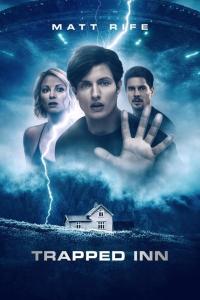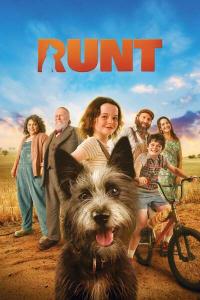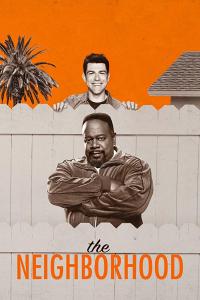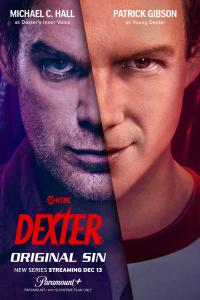Torrent details for "[folk-rock, indie-folk] (2021) Will Stratton - The Changing Wilderness [FLAC] [DarkAngie]" Log in to bookmark
Controls:
Language:
 English
EnglishTotal Size:
196.94 MB
Info Hash:
3fdab9a4fc6a03464923304842eadd37025919c3
Added By:
Added:
07-05-2021 11:55
Views:
499
Health:

Seeds:
1
Leechers:
0
Completed:
352
Review:
One of the wonderful things about discovering the music of Will Stratton is that it’s such a vast world within a handful of albums, and diving into it can be a thrilling and multifaceted experience. There is the eloquent, off-kilter arrangements of songs like “Colt New Marine”. The rustic, acoustic finger- picking in “Helmet Pine Singer” is reminiscent of 1970s British folk guitarists. The warm, engaging shuffle of “Manzanita” sounds like a long-lost Josh Ritter single. With a new album, The Changing Wilderness, Stratton adds another collection of songs to his repertoire, ones that blend in rather seamlessly with the rest of his work but are also undeniably tied into the world climate of the last few years. “I felt a real unease in the lead-up to the 2016 election,” Stratton explained from his home in Beacon, New York. “A lot of the music I was making on (2017’s) Rosewood Almanac was influenced by that. By the time I was writing the songs on The Changing Wilderness, it just felt inescapable. I couldn’t write about anything else except for these fundamental primal thoughts that I was having all the time about totalitarianism, climate change, disinformation, paranoia, and society coming apart and coming back together again. So even when I was writing personal music, it felt inextricable from the political.” The Changing Wilderness was made over three years, and three different versions of the album were recorded during this time. One was made in London while Stratton was touring there, another was recorded at a friend’s house deep in the woods of Lenox, Massachusetts, and the third series of sessions took place in piecemeal fashion at Stratton’s home studio as well as a studio in Queens. The latter sessions are what ended up becoming the bulk of the final product (the final song, “Stillness”, is from the Lenox sessions). With guitarist Ben Seretan (whose 2020 album, Youth Pastoral, was mixed by Stratton) contributing guitar, vocalists Maia Friedman, Cassandra Jenkins, and Eamon Fogarty recording their parts remotely, and further contributions from musicians and friends Carmen Rothwell, Matt Johnson, Sean Mullins, and Justin Keller, The Changing Wilderness is more of a collaborative effort than Stratton’s previous releases. “I’m trying to get more into that collaborative vein, and less focused on the guitar and vocals and the instruments that I play.” Stratton’s interest in music began at an early age. Born in California but raised primarily in Basking Ridge, New Jersey, he played in various bands throughout middle school, high school, and college. During his senior year in high school, Stratton – who had been putting a lot of his music on MySpace – was approached by his friend Kieran Kelly, who owned a studio in Queens and offered to let Stratton record an album there. “I was thrilled to be able to work in a studio,” Stratton said. But the recordings were left unreleased for two years. “For a couple of years, I was pretty distracted, getting my bearings, figuring out what I wanted to do academically,” Stratton explained. “Eventually, it just had to be put out there.” That debut album, What the Night Said, was released in 2007 on Kelly’s label, Stunning Models on Display. What the Night Said also features oboe playing by Sufjan Stevens, who was recording his album Illinois at the same studio. Stevens’ appearance on the album thrilled Stratton to no end. He calls Stevens “one of the best arrangers of the 21st century. Michigan was probably one of the top five most important albums for me in high school because it was the first time I heard American minimalism being married to more overtly emotionally expressive singer-songwriter music. I don’t think anybody’s ever done that as well as he did on that record.” Anyone familiar with Stratton’s music will likely recognize influences that go back much further than Sufjan Stevens. Nick Drake is an obvious influence, as well as many of the acclaimed musicians of the 1970s British folk-rock scene. “I think Nick Drake, Bert Jansch, Dave Evans, Richard Thompson, for all of those people, the guitar element and the songwriting element are inextricable for me,” he said. “With Nick Drake, for instance, his guitar playing drew me to his music more than the songwriting. His songwriting is incredible, but he is such an individualistic guitarist. That approach of using alternate tunings as a way of completely mystifying the process of playing guitar was really appealing to me.” Stratton – himself a highly inventive, greatly underrated guitarist – compares the process of using alternate tunings to putting on a blindfold. “It’s a way of cutting off the part of my brain that would be focused on what the chords or notes are, and just focusing on what the sounds are,” he explained. “The side effect of that is that you do end up going to some unexpected places, and maybe if you’re lucky, you find these worlds in the guitar that are at least partially unexplored. And that’s always been really appealing to me.” After What the Night Said, Stratton continued releasing albums – No Wonder (2009), New Vanguard Blues (2010), Post-Empire (2012) – but in 2012, a cancer diagnosis sidelined him. After successful treatment, he released Gray Lodge Wisdom in 2014, an album made while he was still in the recovery stages of the disease. “A lot of the songs I wrote on that album were while I was under the influence of chemo brain,” he said. “They were prescribing me oxycontin and all of this awful stuff. I cut myself off from the painkillers earlier than they wanted me to because I could feel it clouding my thinking and judgment.” As a result, Stratton also outsourced a lot of the arrangements to other musicians. Stratton’s next album, Rosewood Almanac, was made while he was teaching at a boarding school in the Hudson Valley, where he’s lived since 2015. By this point, he describes himself as “chronically overworked” and was making music to have fun. With the convenience of a home recording studio, he’s happy to make music on his terms and not have to book enormous amounts of studio time. With The Changing Wilderness, the backdrop of the Trump era of fascism was very much on his mind, and the lyrics inevitably reflect that unease. Songs like “Black Hole” address totalitarianism and the evil it breeds: “Hatred corrupts, and it purifies, too / It simplifies thoughts just like love can do / Oh, how I miss when it was an optional vice / Something you’d choose when fear was the price.” The opening track, “Tokens”, was inspired by – among other things – the concept of geoengineering. “All of these different gambits that very wealthy people decide to take on behalf of society in order to buy us more time,” Stratton explained, “as we approach this ever-increasing point of no return regarding climate change.” “Tokens” and “Fate’s Ghost” were the first songs written for the album and are in the same tuning, so they feel like a pair to him. “They both exist in this lyrical dream world,” he said. “That fundamental feeling of unease.” As The Changing Wilderness makes its way into the world, and the world itself begins to open up post-pandemic, a logical next step would be a tour by the end of 2021, but Stratton already has his hands full with other non-musical projects. He’s about to start graduate school to obtain a Master’s degree in labor studies and would like to eventually become a strategic researcher for labor unions, a career path that he hopes will eventually aid other musicians. “Being a career musician has gotten progressively harder as the streaming companies take over progressively more market share, touring becomes the main source of income for artists, people feel obligated to sell their publishing rights, and so on,” he said. “I think the only solution is organizing, forming collectives, unionizing. Building these power structures that can contend with the forces destabilizing what little safety nets we had before this. I do believe that there is a brighter future ahead of us in terms of economic justice for musicians and all sorts of workers if we can just put our minds to it and figure out where we’re needed.”

Tracklist:
01 - Tokens
02 - Black Hole
03 - Infertile Air
04 - The Rain
05 - Finally Free
06 - Fate's Ghost
07 - When I've Been Born (I'll Love You)
08 - River of Silver
09 - Venus
10 - Stillness
Media Report:
Genre: folk-rock, indie-folk
Format: FLAC
Format/Info: Free Lossless Audio Codec, 16-bit PCM
Bit rate mode: Variable
Channel(s): 2 channels
Sampling rate: 44.1 KHz
Bit depth: 16 bits










































